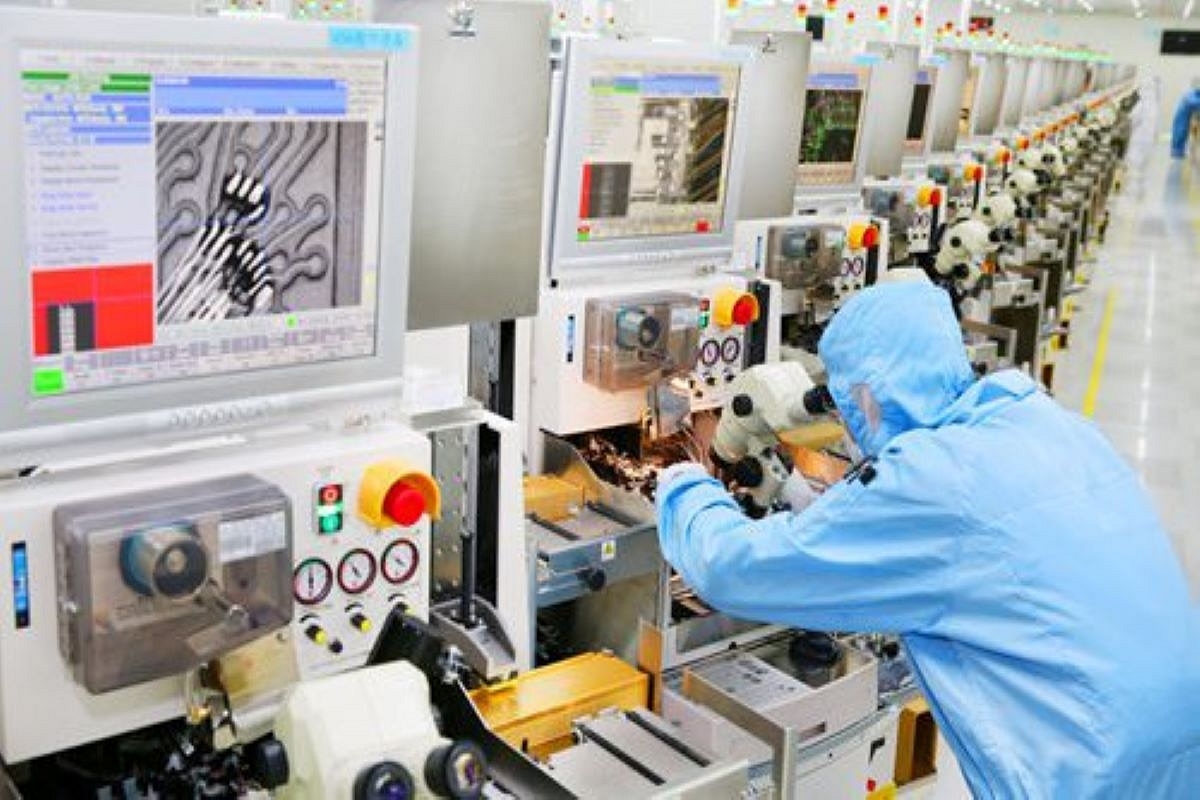World
China No Longer A Viable Manufacturing Destination: Kyocera President

A chip factory at Nantong, East China's Jiangsu Province. (Representative image). (Wikipedia).
Hideo Tanimoto, head of Kyocera, one of the biggest producers of chip making components globally, has questioned the viability of China as a manufacturing base for exports.
As reported by the Financial Times, Tanimoto stated that the export controls ushered by the United States (US) are denting China’s prospects to access advanced technology for chipmaking.
Kyocera is already diversifying its production away from China, investing heavily in Japan and building its first home factory in over two decades.
Tanimoto added that as long as the products are being made in China for consumption in the country itself, the export controls do not hurt, but from a global perspective, exports are becoming difficult to other regions.
The United States and China have been engaged in a trade war, starting with President Donald Trump’s tariff controls. During President Joe Biden’s regime, export controls were ushered, restricting China’s ability to produce advanced semiconductors.
Further, White House introduced the CHIPS and Science Act incentivising chip manufacturing in the US.
In October 2022, the US Commerce Department, under the Biden administration, announced a set of sweeping instructions, aimed at disrupting China’s manufacturing dominance in the supply chain sector.
The Commerce Department, back then, claimed that the latest export control moves were intended to halt shipments of chips and chip-making technology of potential use to China, in its military build-up and bid to dominate key industries.
The Biden administration added China's top memory chipmaker Yangtze Memory Technologies (YMTC) and 30 other Chinese entities to a so-called ‘unverified’ trade list.
Put simply, the US wants to cripple China’s ability to produce advanced semiconductors (3-14 nanometre process technology).
Thus, the cost of these restrictions will be felt by Chinese chipmakers, especially those working on cutting-edge technologies for next generation computing.
This also impacts production in China, the conventional factory of the world. For instance, the latest Androids and iPhones, gaming laptops, Macbooks, and other high-end devices, all use semiconductors in the 5-10 nanometre spectrum.
The Chinese are now without the ability to produce chips and even chip making equipment; a double whammy to the semiconductor ambitions of President Xi Jinping.
Introducing ElectionsHQ + 50 Ground Reports Project
The 2024 elections might seem easy to guess, but there are some important questions that shouldn't be missed.
Do freebies still sway voters? Do people prioritise infrastructure when voting? How will Punjab vote?
The answers to these questions provide great insights into where we, as a country, are headed in the years to come.
Swarajya is starting a project with an aim to do 50 solid ground stories and a smart commentary service on WhatsApp, a one-of-a-kind. We'd love your support during this election season.
Click below to contribute.
Latest